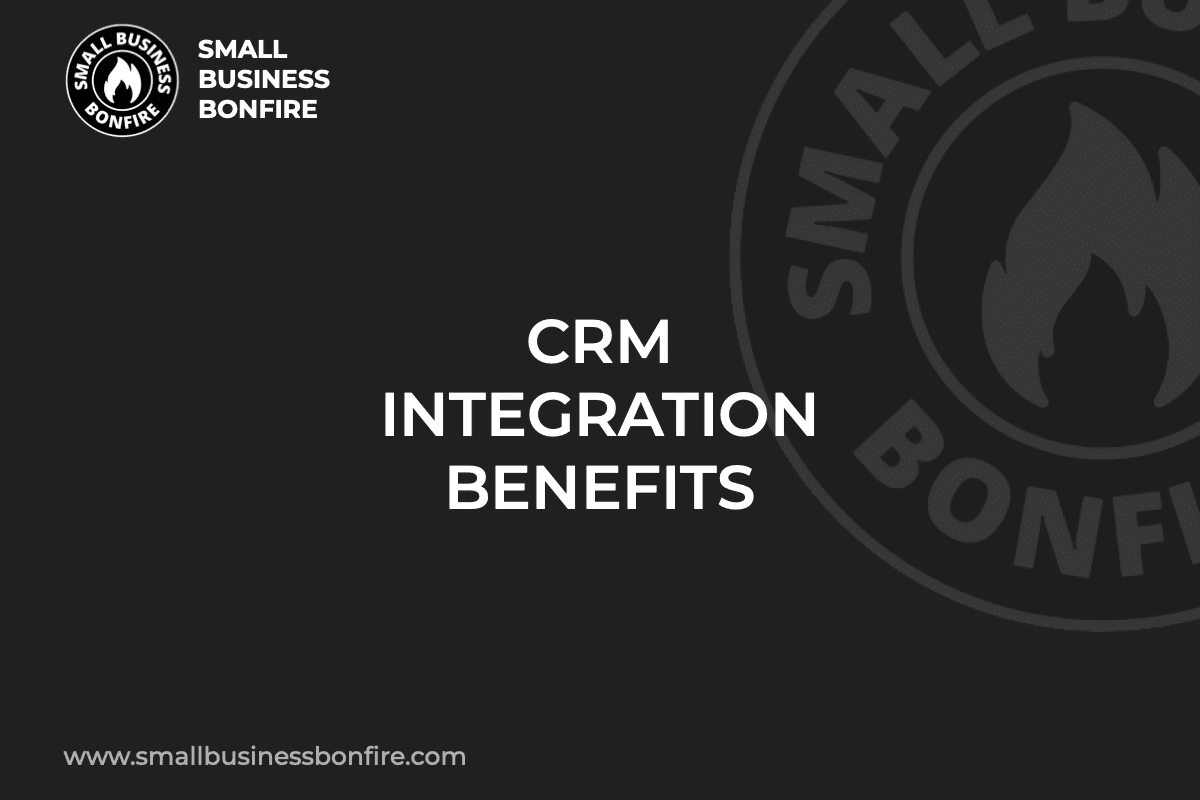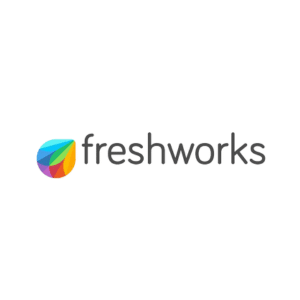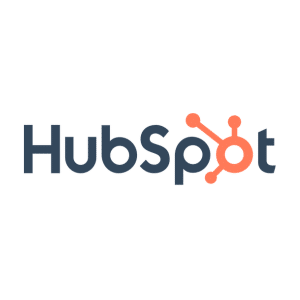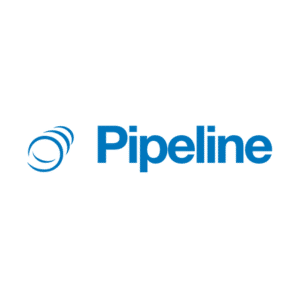Is your team using customer relationship management (CRM) software yet STILL finds themselves switching between multiple programs?
This constant juggling of applications not only disrupts workflow but also increases the risk of errors and inconsistencies, leading to customer dissatisfaction and lost opportunities.
Hi, my name is AJ! I recently sold my business for multiple seven figures. I started Small Business Bonfire (SBB) to give entrepreneurs the tools and advice I wish I had when I was first getting started!
Over the past decade of building my business, I learned how helpful and efficient integrations are with CRM software.
Are you looking to make your team as efficient as possible using CRM integration apps and strategies? If the answer is yes, keep reading!
Key Takeaways
- CRM software tracks customer details, ensuring teams have 360-degree profiles of each person.
- Integrations include software for accounting, email marketing, and time-tracking tasks.
- CRM integration streamlines business processes and allows employees to work efficiently.
- Integration tools save time, ultimately leading to an improved customer experience.
Related Reading: Best Small Business CRM
SBB Featured Partners
What is CRM (Customer Relationship Management)?
What is CRM? Customer relationship management (CRM) software is like an advanced address book.
Imagine you have a lemonade stand and want to remember who all your customers are, what they like, and when they last bought lemonade from you.
CRM software is the tool that helps you keep track of all this information (and more)!
A CRM system is your company’s go-to assistant that keeps all your customer details in one place so you can have a more effortless and better time running your lemonade stand (or any business!).
With a high-functioning CRM tool in place, companies can enjoy the following benefits:
- Efficient employees
- Streamlined business processes (sales pipeline, customer service inquiries, etc.)
- Higher revenue
- Better communication (with employees and between customers)
- Better customer interactions
- Targeted marketing strategies
What are CRM Integrations?
CRM integrations are like the magic helpers for your lemonade stand.
Remember how the CRM is like your advanced address book, keeping track of all your customers?
Well, CRM integrations are unique add-ons that make your address book even better.
For instance, integrations can help you remember a customer’s birthday, so you can send them a special gift or remind them when it’s time to call a customer and see if they want more lemonade.
Some examples of integrations include:
- Accounting software: To keep track of sales and expenses.
- Email marketing tools: To track customer interactions with emails.
- Time tracking tools: To stay updated on employee hours logged for each project.
Thus, integrating your CRM with additional tools can transform your business operations and enable more efficient and streamlined workflows.
What are the Benefits of CRM Integrations?
The benefits of CRM integration are unbelievable! Seriously, integrations can enhance your business in many ways.
And after discovering the benefits I’ve compiled, you’re going to wonder why you haven’t invested in integrations earlier!
Let’s take a look at the benefits of CRM integration!
Enhanced Customer Experience
Customer experience is essential for every business.
CRM integration helps track interactions, keeping notes on each customer.
That way, your sales and marketing reps can utilize information from previous interactions and build better relationships.
After all, nothing is more frustrating than repeating yourself to a salesperson because the company doesn’t have notes about previous interactions.
Better Customer Profiling
CRM integrations offer more insight into customer profiles.
Integrations extract data from various sources like email, social media accounts, purchase histories, and more to help you understand who your customers are.
This information will help you better target potential and existing customers with marketing campaigns, ensuring each message is personalized and relevant.
Lower Overhead Costs
With CRM integration, your team doesn’t have to switch between multiple programs.
Integrations allow you to view data from one platform or application and act on it within the same software.
Therefore, each integrated app saves time, energy, and money while helping employees work smarter, not harder!
Also, integrations ensure your company doesn’t spend money on unnecessary software.
Increased Employee Productivity
Without an integrated CRM system, your team is forced to switch between programs manually.
For example, if notes about customer behavior are in a separate program from your CRM, a sales rep has to switch between programs to find what they’re looking for.
Switching between programs may seem like a minor inconvenience, but switching between programs wastes valuable time.
Integrations boost productivity because everything is in one place.
Reliable Customer Data
Integrations make sure customer information is up-to-date and accurate.
Integrated solutions pull data from multiple sources, ensuring all the details are accurate and reliable.
Accurate information helps your team quickly act on any changes in customer behavior or interests, ensuring their message is timely and relevant.
Better Customer Views
CRM integration gives your team an in-depth look at each customer, helping them customize their journey.
For instance, integrations can give you insights into the following customer details:
- Purchasing habits
- How much the customer spends at your company
- A customer’s interactions on your website
- Which social media platforms does the customer engage with the most
Better customer views lead to 360-degree profiles, ensuring your team can cater to everyone!
Improved Bottom Lines
Integrated CRM systems lead to increased sales, higher customer satisfaction levels, and better customer profiling.
These factors improve bottom lines, helping your organization reach its goals more quickly and effectively.
In-Sync Customer Data
CRM integration keeps customer data in sync across multiple applications.
For example, if a customer updates their address on one platform, it will be updated across all other systems within the same CRM tool.
This way, you won’t have to worry about outdated customer information or mistakes that can compromise your customer service experience.
Improved Reporting
Integrating CRM systems with email or CMS tools allows your employees to access in-depth reports.
These detailed reports offer sales and marketing strategies, indicating what works and needs improvement.
Also, improved reporting allows your team to do the following things:
- Calculated accurate lead conversion rates
- Determine customer retention rates
- Track and improve marketing campaigns
- Use customer information to build sales strategies
- Find sales funnel improvements
Accurate reports ensure your team makes data-driven decisions instead of guessing the best route!
Increased Customer Retention
Integrations improve customer retention rates because CRM systems track valuable customer data.
As a result, your sales team has notes and previous transaction histories of each customer.
Customers value the feeling of being catered to, so taking action to improve brand loyalty is a must.
More Upselling Opportunities
CRM integration allows sales reps to better understand when potential customers are ready to purchase.
When sales teams push additional purchases on the first or second point of contact, it can pressure the customer.
However, with an integrated CRM, you understand customers and can create natural opportunities for upselling.
Personalized Customer Messaging
Personalized messages are incredibly beneficial!
For instance, some benefits include the following:
- Customers are more willing to provide valuable (and accurate) data
- Easier to promote brand loyalty
- Easier to identify the channels customers use most
- Easier to personalize email marketing tools
Customers are more likely to buy products or services from your company when they feel special and like you’re catering to them.
Better Security
CRM integration also improves data security, ensuring unauthorized users cannot access your data.
Typically, integrations use APIs to access data, allowing your company information to live elsewhere, and reducing the risk of data leaks.
Lastly, integrations make it possible to restrict certain users from accessing specific parts of your website, CRM, etc.
More Consistent Sales
Lastly, integration creates more consistent sales, which is integral to success.
CRM solutions make it easier to consistently connect with existing and potential customers, leading to more sales.
Too often, companies contact a customer once and then never again until five weeks later, leading to lost sales opportunities!
CRM Integration Examples
I’ll provide two everyday CRM integration examples so you can see how third-party applications can help your company!
MailChimp and CRM Software
Imagine if your favorite online game could remember your high scores and favorite characters and suggest new games you might like.
That’s pretty cool, right?
That’s similar to what happens when companies integrate their CRM with MailChimp, an email marketing service.
The CRM stores all customer details, like their email addresses and what they typically buy.
When this information is shared with MailChimp, teams can send personalized emails to customers with suggestions for products they might like based on past purchases.
Salesforce and Slack Integration
Think about how you chat with your friends on apps like WhatsApp or Snapchat, sharing fun facts or cool pictures.
Imagine a similar app for businesses, where teams can chat, share files, and even make decisions. This app is called Slack.
When teams integrate Slack with Salesforce, a CRM tool, conversations, files, decisions, and more can be linked to customer profiles in Salesforce.
Therefore, a sales rep can chat about a customer in Slack, and all that info will be saved in the customer’s profile in Salesforce.
Basically, it’s like having a super-smart note-taker in every conversation, ensuring nothing important is forgotten.
What Types of Companies Benefit from CRM Integrations?
Is CRM integration right for your business?
Integrations can help all kinds of companies, including the following:
- SaaS companies
- Service companies
- Product-focused companies
Let’s take a look at each of these examples!
SaaS Companies
Integrations can greatly benefit software as a Service (SaaS) companies.
In a sector where customer success directly translates to business success, SaaS businesses need a comprehensive understanding of user behaviors, needs, and expectations.
Fortunately, CRM integration allows them to capture, analyze, and manage customer data effectively.
Also, an integration can track user activity within the software and uncover valuable insights to help them optimize the user experience.
Service Companies
Service companies can also leverage CRM integration to build better relationships with customers.
Service companies can better understand user preferences and habits by integrating customer data into the system.
Understanding their target audience helps companies create personalized experiences that keep customers returning for more.
For instance, if a customer usually orders a specific product on Tuesday evenings, the company can offer a special discount code.
Product Based Companies
Product-based companies can also use CRM integrations to track customer data and optimize their marketing techniques.
Product-based companies can create tailored experiences that increase conversions and boost customer satisfaction by understanding what customers are looking for.
Integrating a CRM platform allows businesses to analyze customer purchases and develop more effective upselling opportunities.
Closing Thoughts on the Benefits of CRM Integrations
CRM integration is essential for successful businesses!
Benefits of integrations include more productive employees, better customer relationships, and a streamlined sales process!
What integration tools will your company use? Let us know in the comments section below!
Newsletter Signup
Join The Leads Field Guide Newsletter for tips, strategies and (free) resources for growing your leads, and closing more deals.




